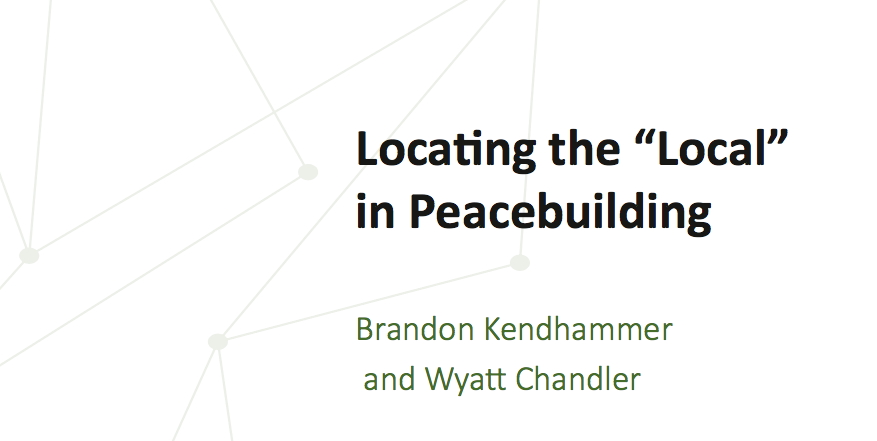Locating the “Local” in Peacebuilding

Abstract
Drawing on an extensive literature review and four case studies from leading examples of post-conflict local peacebuilding in sub-Saharan Africa, this report argues that the “local” in local peacebuilding is best defined as local knowledge of conflict drivers and dynamics and locally defined, contextually specific definitions of peace. This does not necessarily mean working through or empowering “traditional” actors and institutions (a highly contested category, in any case). Nor should it mean a narrow focus on subnational conflict drivers and peace actors to the detriment of assessing how national and international dynamics shape local peace challenges (and vice versa). International donors and peace actors are most successful when they operate with a keen awareness that all potential peacebuilding actors (national and local actors, but also external donors, "experts," and implementers) have their own agendas and that peacebuilding efforts that work at the sub-national level and engage local actors are not automatically endowed with legitimacy and community buy-in just because of their "localness." International actors must also be flexible and open to partnering with a wide range of local actors, including those that don’t meet preconceived international expectations about what an effective local partner looks like (often, old, male, and "traditional").
Suggested citation:
Kendhammer, Brandon, and Wyatt Chandler. Locating the “Local” in Peacebuilding. Washington, D.C.: RESOLVE Network, 2021. https://doi.org/10.37805/lpbi2021.1.